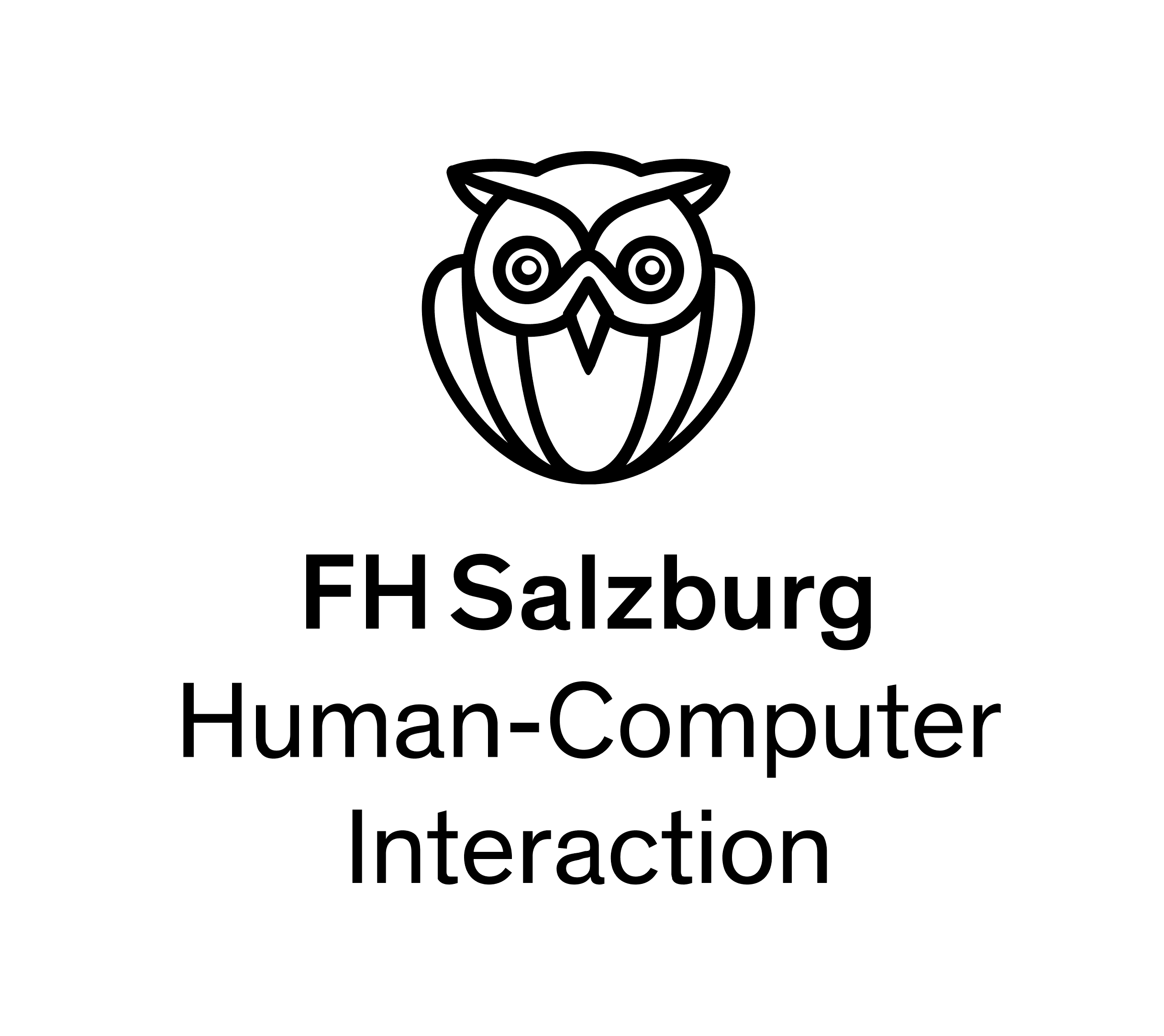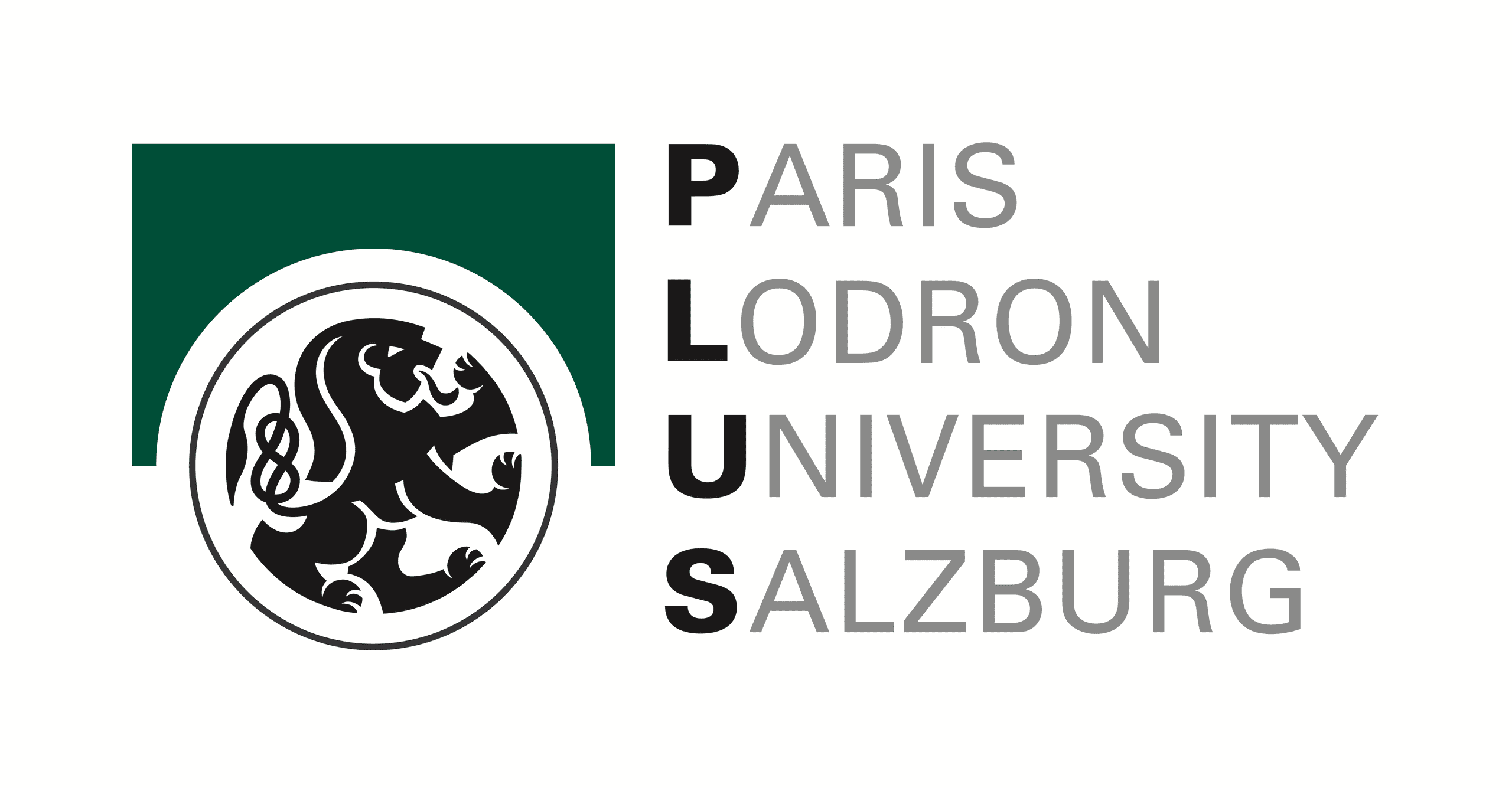HCI Students Conference
HCI Students Virtual Conference 2020
The Conference will take place on July 14th, 2020 in Google Meet.
The Proceedings of the Salzburg HCI Students Conference 2020 are presented here: Proceedings of the Conference.
SPEAKERS

Robin Maximilian Baudisch
Grocery shopping experience for visually impaired people
Individual grocery shopping might still be frustrating and time demanding for visually impaired people. A lot of uncertainties are involved to this action, such as navigation to the market, finding specific products or reaching out for help to strangers. We aim to explore the possibilities of how to improve this process. Further we investigate the usage of current assistive technology and propose a way of how actively forming social bonds, can lead to a barrier free experience for visual impaired people.

Isabella Maria Wimmer
The Influence of Gender & Age on Communication Media Use in the Context of a Pandemic
In the course of this paper the influence of gender and age on the choice of communication media used in the context of the Covid-19 pandemic in 2020 is investigated. In earlier studies effects of gender and age in terms of how communication media are used have been found in ’normal times’ in a variety of user groups and media types. Thus it is not only interesting to see how more recent commu- nication media are affected, but more so how the pandemic of Covid-19 might affect the influence of gender and age on the choice of communication media and their use.

Philipp Wagner
Accessibility of Libraries in Times of Pandemics
Due to the recent global COVID-19 pandemic, many aspects of everyday life changed drastically, especially in regards to public spaces. The presented paper looks to provide recommendations on how libraries can be kept accessible during times of pandemics. Engaging in a ’research though design’ study, possible design problems and solutions were encountered through expert interview data analysis. Further analysis of this data through contextual interaction design methods allowed for the creation and operation of various design fic- tions brought to life in online workshops with field experts. The extrapolated opinions of the participants began as the foundational layers of the design process towards a variety of prototypes that aim to enhance library user experience (UX) and keep libraries accessible in times of pandemics.

Dennis Schoepf
You Can Change: How Persuasive And Playful Interactions Can Help Reduce Environmental Footprints
Climate change is one of the biggest challenges humanity is facing right now. It is a result of billions of different individual actions. To combat its devastating effects a change in behavior is necessary. Within this paper we focus on how technological interactions derived from Play Theory and Persuasive Technology could help achieve that. We specifically target how technological interventions can change food consumption pat- terns by reviewing relevant literature and interviewing experts in both of the mentioned fields. Based on our findings we ultimately create a critically designed prototype influenced by relevant theories we discovered, aimed at raising awareness of the problem at hand. We conclude with a discussion of further implications and suggest directions for future research.

Abdelhamid Abdelmegid
Discovering opportunities and Limitations for online grocery shopping for people living in transportation limited areas
In an attempt to understand what opportunities and limitations could be for online grocery shopping in contrast to shopping for groceries physically. A series of interviews has been conducted to better understand the context, the motivations, the needs and the challenges people face when it comes to shopping for groceries in general whether online or in store.
A qualitative approach is adopted in this research study to focus on the human experiences associated with shopping for groceries. The interviewees selected had limited access to transportation and living in areas with limited urban development in Austria & Germany those are my 2 main criteria for selecting candidates. On the other hand we had an expert interview working in a leading online grocery startup in Cairo. Therefore the research is of an exploratory and descriptive type which seeks to answer the “why and how” behind a certain behaviour, motivation or need from a user side. The paper goes beyond the literature and tries to understand how the user behaviour changed towards the physical and online grocery shopping after Covid19 pandemic in Austria & Germany. And by suggesting design implications for future digital grocery shopping solutions.

Tim Ungerhofer
"You are touching your face" - An approach to avoid self-inoculation through habitual face touches
Touching one’s face is one of the main mechanisms of self-inoculation, the transferal of a disease from one part of one’s body to another. One of the general recommendations is frequent and thorough hand-washing. However, since humans tend to touch their faces up to 23 times per hour, it might not be enough to wash your hands more often and reducing the frequency of face touching can act as another way to avoid unnecessary risks. Our goal was to find out when people tend to touch their faces during video conversation and how to help reduce this habitual action. We found that we can cause a change in behaviour by issuing a single reminder not to touch their faces during the video conversation. Furthermore, we provide design ideas for tools which remind people not to touch their face during these conversations by notifying people when they touch their face and when their hand movement indicates they are about to touch their face. In this manner, the occurrence of habitual face touches can be reduced effectively.

Kai Tölle
Classroom lectures going digital
This paper presents the changes in interactions that occur when university classes are carried out via online communication tools, such as Google Meet or Microsoft Teams. It contributes to the research area of e-learning and to the field of HCI by presenting the results of an ethnographic study at an HCI Master’s program in Salzburg, Austria. It seeks to (a) show how students and teachers adopt online communication classes as replacement of classroom-based lessons and (b) uncover fields of interactions that are affected by this switch. The study is informed by activity theoretical HCI and uses the Human-Artifact Model (HAM) by Bødker & Klokmose (2011) to capture the changes of the artifacts. Due to the complex artifact ecology of university classes, this study presents an adaption of the human-artifact model to capture the usage of artifacts in (1) on-site, (2) online classes and (3) the challenges and limitations involved.

Irina Mittermayr
COVID-19 as threat for our society: Investigating Effects on People's Safety Feeling and Well-being during a Pandemic
The Coronavirus has presented us with great challenges. Especially when it comes to the restrictions like social distancing which influenced our lifestyle remarkable. To find out what factors influence how safe and well people feel during a pandemic, we conducted a diary study. 7 participants filled out a diary framework over 14 days, and took part in final interviews. The study showed the importance of reflecting on one owns emotional situation to come through this time with a better feeling. Other important factors to improve the individual situation was the possibility to connect with nature as well as having a daily routine and something to work on. In our research project we created a the prototype of a smart artifact which helps the user to reflect on the situation and to find a daily routine in their changed living situation.
Time Schedule
14. Juli
09:00 - 09:15
Conference Opening
09:15 - 10:00
Session 1
Short Intro of the Speakers
10:00 - 10:30
Session 2
Short Intro of the Speakers
10:30 - 10:45
Coffee Break
Grab your own coffee!
10:45 - 11:30
Session 3
Short Intro of the Speakers
11:30 - 12:00
Conference & Semester Closing
Partner
Team


